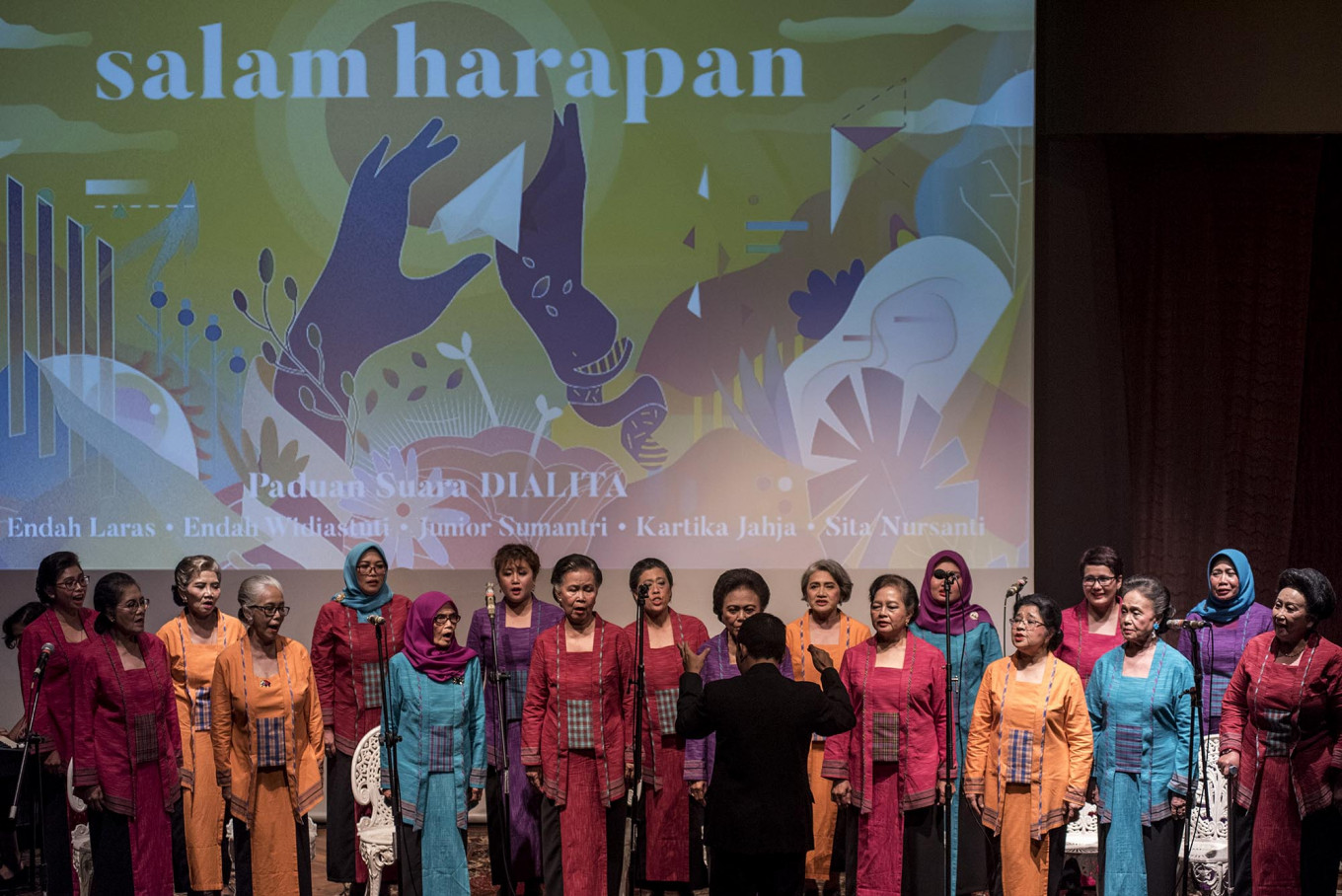Popular Reads
Top Results
Can't find what you're looking for?
View all search resultsPopular Reads
Top Results
Can't find what you're looking for?
View all search resultsDialita, 1965 survivors choir, to accept Gwangju human rights award
"This is not just an award, this is recognition," says head of Dialita Choir.
Change text size
Gift Premium Articles
to Anyone
T
he Dialita Choir, a group of survivors of the 1965 tragedy in Indonesia, is being honored by the May 18 Memorial Foundation in South Korea with a special 2019 Gwangju Prize for Human Rights for "showing the path to reconciliation and healing through music".
The ceremony is slated for May 18 in Gwangju in South Korea.
Chief of the May 18 Memorial Foundation, Lim Seon-suk said Indonesia had experienced historical turmoil since independence in 1945, with warring ideologies and competition for power.
“This contention culminated in the September 1965 alleged failed coup d’etat, which was followed by the purging of many Indonesians through extra-judicial seizure, torture and executions. This purge effected hundreds of thousands of Indonesians and was never officially acknowledged by the government. Since then, survivors and their families continue to suffer deep stigma and discrimination,” said Lim.
Dialita Choir members sing to support fellow survivors as well as for self-healing. “Its songs convey a message of peace and solidarity, in the hope that it will educate the country about its forgotten past, in particular the younger generation,” Lim went on.
The special prize is bestowed by the May 18 Memorial Foundation, which was formed to commemorate the thousands of victims of a bloody protest from May 18 to 27, 1980 in South Korea. The event has become known as the Gwangju Democratic Uprising.
The foundation, established in 1994 by the survivors of the uprising, has bestowed human rights awards since 2000. “This prize goes to individuals who have made the greatest contribution to human rights and democracy or an organization that has had a significant struggle and contributed to the improvement and advancement of human rights, democracy and peace in the their own country in Asia,” the website of the foundation says.
The special prize, awarded twice yearly since 2011, is given to “those who work for the improvement of human rights by means of journalism, culture and literature.”
The head of the Dialita Choir, Uchikowati Fauzia, said the award was the first it had ever received.
“This is an acknowledgement of Dialita’s work and fight for human rights through music and culture. This is not just an award, this is recognition,” said the 67 year old woman.
Dialita, which stands for “di atas umur lima puluh tahun” or “above 50 years old”, said she would receive the award, accompanied by Indonesian human rights activists Zaenal Muttaqien and Miriam Nainggolan.
The all-women choir also conveys human rights messages through its work. It released its first album in 2016, titled Dunia Milik Kita (The World is Ours), which has 10 songs. The choir collaborated with young artists. The album was met with critical acclaim and Rolling Stone Indonesia magazine named the album among 2016’s top-10 best albums.
“Since then, more young people have come to know Dialita,” she said.
The selection committee of the May 18 Memorial Foundation will present the main award to Joanna K. Carino from the Philippines.
Lim said the foundation recognized Carino’s fight against militarism and human rights violations against indigenous communities.
The selection committee said in a statement that the Dialita Choir had shown the path to reconciliation and healing through its music, an inspiration to world citizens who yearned for peace and democracy.
In the past, the award has been given to Xanana Gusmao from Timor Leste, Wardah Hafidz from Indonesia and the Bersih movement from Malaysia.










